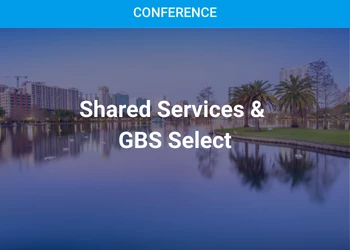Interview with Paul Fipps, The Charmer Sunbelt Group
Add bookmarkSSON runs a Global Excellence Awards in the US, Europe, Asia and Australia. To enter YOUR organization for an award click here. Don't delay! The US Awards deadline is coming up!
Winner of the SSON Best New Captive Services Delivery Award 2010 (Americas)Â
Q: Paul, please explain your role at CSG to us. How did it evolve?
PF: I joined The Charmer Sunbelt Group in 1998, and originally started in IT. In 2004 I moved into a Director role, where I took on the responsibility of heading up systems development, which included the SAP implementation. In 2007, I left IT to start up Shared Services. I really liked tackling the critical role Shared Services would play in the evolution of Charmer Sunbelt. As a decentralized company, Shared Services is the "glue" that keeps us delivering optimal customer service consistently across our business units.Â
In terms of my present role…my official title is CIO and VP Business Services. Business services, for us, includes both technology and business operations. It includes Customer Service, Financial Services, and, given the critical role it plays across these functions, we added Information Technology last year.
Q: Paul, given what you’ve already achieved in the past three years — as exemplified by CSG sweeping the Award for Best New Captive Services Delivery, 2010 – what are you aiming for next year?
PF: We revisit our Shared Services vision every year & set goals by getting all the teams together and brainstorming. What’s happening, though, is that as we work towards realizing our "vision," we are in many cases recognizing opportunities to go even further — to add value beyond our vision.
Take, for example, Customer Care and Customer Service. On the one hand, we process all orders across our business units — so we act as a true call center. But we are also starting to solve deeper-level problems, in partnership with these same business units across the country. So we are moving beyond transactions into problem resolution. This is a step beyond where we originally thought we were heading and we are actively forging this path.
Another area that we are actively developing, as part of our "vision," is the move from what you might call standard "telesales" to "inside sales." This means that we now have a group that calls accounts directly to market our products and services — as a Shared Services offering. We are getting tremendous traction on this. Right now we are covering two business units but we will likely expand this to other units in the next two years.
We also see huge opportunities in expanding what is currently our Enterprise Program Management Office into a process improvement group. Again, it’s all about moving beyond project management into business process optimization. We will be building on this over the next 18-24 months, perhaps incorporating Six Sigma methodology.
Q: What has most impressed you about Shared Services’ potential? What’s had the greatest impact throughout the company?
PF: The toughest transition was the evolution of Customer Service that I already mentioned. But I think what highlights our biggest success – unexpectedly, really -- is our strategic sourcing group.
To give you some background: we have a strategic sourcing group that manages most of our purchase of commodities. Most recently we also moved into key areas around logistics sourcing — so, managing our freight and customs contracts. The surprise is that we didn’t plan for that. We started with traditional payables — payroll, data management, travel and expense. But what happened was that, because we had set up a Shared Services organization, payables was able to get a good view of where we were spending money, how much we were spending, and how many different vendors we were using. So sourcing became a new Shared Service as a result of monitoring and managing the invoice process. This has turned into tremendous value for the organization, operating far beyond just an "office supply contract." Our sourcing group is now the first stop in RFP processes for all kinds of contracts – whether purchasing commodities or contracts with consulting companies. Our sales organization knows we’ll get them the best deal. This savings were unplanned and have had a huge impact on the bottom line.
Q: Do you have some predictions on "global sourcing" for 2011? How do you think the landscape is shifting?
PF: I do have a view on that, based on our experience. From a global sourcing standpoint, I think we will be seeing a greater shift towards what’s being called "rural sourcing." To give you an example: On the IT side, we’ve been using offshoring for five or six years now, with various levels of success. For most of our projects, we’ll have an offshore team and then also someone to manage it here. Recently, though, we contracted with a company in Arkansas. We’ve started small, but I would not be surprised if we expand this. Right now our focus is purely on SAP [ABAP] programming, and it enables us to ramp the resources up or down. Early indications are very positive. We are even engaging them in support work, which is traditionally hard to outsource from a programming standpoint.
What’s interesting is that when I compare the costs for offshore versus rural sourcing, we come out more or less the same. Cost per hour, after you factor in all the overheads, can actually be higher in the offshoring model than the rural model. Yes, labor is cheaper offshore, but then I need someone here to manage it, and travel is costly. Much of it boils down to logistics. The beauty of rural sourcing is that if there is a problem – you are only a short plane trip away. A lot of the additional costs fall away. Therefore, cost of getting work done is actually lower. So from a trend perspective, I can see BPO moving towards more of an onshore presence, if just for the "ease" of working with a local team.
I heard some of this discussion in the G8 Panel discussion at the Shared Services Week in Orlando earlier this year — the message that, you know, Americans could be doing some of these things and there may not be the need to send so much work offshore. It’s good to get these discussions going and I’ll be interested in tracking developments.
Q: Who’s is your favorite writer, and why?
PF: I love to read business books, and when I think of business books, I’d have to say Ram Charan is one of my favorite writers. Execution, which he wrote with Larry Bossidy is an excellent read. What I really liked about it is that he boils down everything he learned from all CEOs. He is basically a CEO coach, and his book summarizes his best teachings — fundamental business practices that lead to success.
Q: Whom would you most like to have dinner with (living or dead)?
PF: Probably Abraham Lincoln. He’d be first on the list.
Q: Where do you live and what keeps you there?
PF: I live in a town called Mount Airy, Maryland, which is a small town about 40 miles west of Baltimore. What keeps us there is the great community — it’s really a wonderful place — and it’s a great place to raise kids. In the end, that’s one of the most important factors.
You can still sign up for the 2011 Awards - email naomi.secor@iqpc.com or click here.
|  |  Paul Fipps will be speaking at at the 15th ANNUAL SHARED SERVICES & OUTSOURCING WEEK, March 1-4, 2011, Peabody Hotel, Orlando, Florida. To attend this event sign up here. |





















